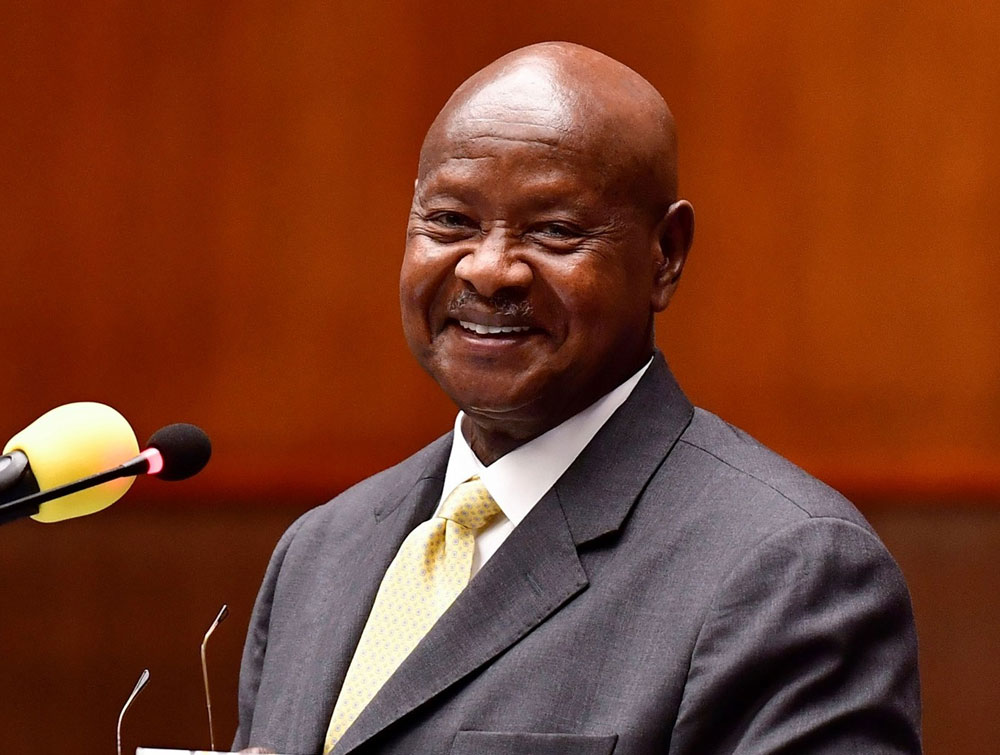
Introduction
Uganda is gearing up for its general elections scheduled for January 12, 2026, a critical event that will determine the country’s next president and parliamentary representatives. With President Yoweri Museveni, who has ruled since 1986, confirmed as the National Resistance Movement (NRM) candidate, and opposition leader Robert Kyagulanyi, popularly known as Bobi Wine, set to challenge him again, the political landscape is heating up. This article explores the electoral roadmap, key candidates, challenges, and the broader context surrounding the 2026 elections.
Electoral Roadmap and Preparations
The Electoral Commission of Uganda (EC), chaired by Justice Simon Byabakama, released a revised roadmap for the 2025/2026 general elections in August 2024. Key milestones include:
- Demarcation and Reorganization: The EC began demarcating electoral areas and reorganizing polling stations in August 2024 to accommodate new administrative units, including nine new cities/districts, 37 constituencies, and thousands of additional parishes and villages.
- Voter Register Updates: The National Voters’ Register was updated in January 2025 and displayed from April 25 to May 15, 2025, to ensure accuracy. A period for removing ineligible voters followed in May 2025.
- Nominations: Presidential and parliamentary candidates will be nominated between September 17 and October 3, 2025, with presidential nominations specifically on October 2-3.
- Campaign Period: Campaigning will commence in the second week of October 2025, leading to polling day on January 12, 2026, with elections extending to February 9 for other levels.
- Special Interest Groups (SIGs): Elections for SIGs (Older Persons, Persons with Disabilities, and Youth) committees from village to national levels are also planned, with timelines issued in May 2025.
The EC aims to conduct “free and fair elections” through stakeholder engagement and innovation, but concerns about funding and electoral reforms persist.
Key Candidates and Political Dynamics
The 2026 elections are shaping up as a high-stakes contest, with familiar faces dominating the race:
- Yoweri Museveni (NRM): At 80, Museveni, endorsed by the NRM in July 2025, seeks a seventh term. He emphasizes stability, progress, and transforming Uganda into a “high middle-income country.” Critics, however, accuse him of authoritarianism, citing constitutional amendments in 2005 to abolish term limits and repression of opposition voices.
- Robert Kyagulanyi (Bobi Wine, NUP): The 43-year-old musician-turned-politician, leading the National Unity Platform (NUP), announced his candidacy in May 2025. After losing to Museveni in 2021, Wine alleges fraud and violence marred the process. He expects a “bloody” 2026 election but believes Uganda’s youthful population (80% under 35) could drive change.
- Other Opposition Figures: Kizza Besigye, a veteran opposition leader, is currently detained on treason charges, which he denies, limiting his participation. Opposition parties are exploring a coalition to field a unity candidate, though internal divisions pose challenges.
Notably, Museveni’s son, Muhoozi Kainerugaba, head of Uganda’s military, withdrew his presidential bid in September 2024, endorsing his father. This move quelled speculation about a dynastic succession but raised questions about his future role.
Challenges Facing the Elections
Several issues threaten the credibility and peacefulness of the 2026 elections:
- Funding Shortfall: The EC faces a Shs623.9 billion (approximately $170 million) funding gap for the 2025/26 financial year, critical for voter education, ballot production, and polling official training. Justice Byabakama has urged Parliament to address this urgently.
- Electoral Reforms: The EC and opposition advocate for constitutional changes, including allowing prisoners and Ugandans in the diaspora to vote. However, progress is slow, with Justice Minister Norbert Mao yet to table reforms promised within three months from August 2024.
- Violence and Repression: The 2021 elections were marred by irregularities, violence, and a crackdown on opposition supporters, with at least 50 deaths reported. Recent incidents, including the army raiding NUP headquarters in May 2025 and abductions of opposition activists, signal rising tensions. The US Holocaust Memorial Museum warned of potential “mass atrocities” in 2026.
- Media Crackdown: Journalists face increasing attacks, with incidents during a March 2025 by-election raising fears for press freedom in 2026. The Committee to Protect Journalists called for accountability to ensure a transparent electoral process.
- Voter Apathy and Education: Low voter turnout (57% in 2021) and inadequate voter education, especially in northern Uganda, remain concerns. MPs have urged the EC to enhance sensitization efforts.
Broader Context and International Concerns
Uganda’s elections occur amid a tense political climate. Museveni’s nearly 40-year rule has drawn criticism for stifling dissent, with opposition leaders like Wine and Besigye facing arrests and intimidation. The 2021 election was labeled “fundamentally flawed” by the US State Department, and international observers, including the EU, declined to monitor due to ignored recommendations from 2016.
Bobi Wine has criticized Western governments for prioritizing diplomacy and business over human rights, urging global support for democracy. Meanwhile, Museveni’s strategic moves, such as abolishing the state coffee agency to weaken the opposition-stronghold Buganda region, indicate a calculated approach to retaining power.
The 2026 Ugandan general elections represent a crossroads for the nation’s democracy. With a well-defined roadmap but significant challenges—funding gaps, stalled reforms, and risks of violence—the EC faces a daunting task to deliver credible elections. The contest between Museveni’s entrenched regime and Wine’s youth-driven opposition will test Uganda’s democratic resilience. As the world watches, the hope for a peaceful and transparent process hinges on robust preparations, international pressure, and the will of Ugandans to shape their future.
